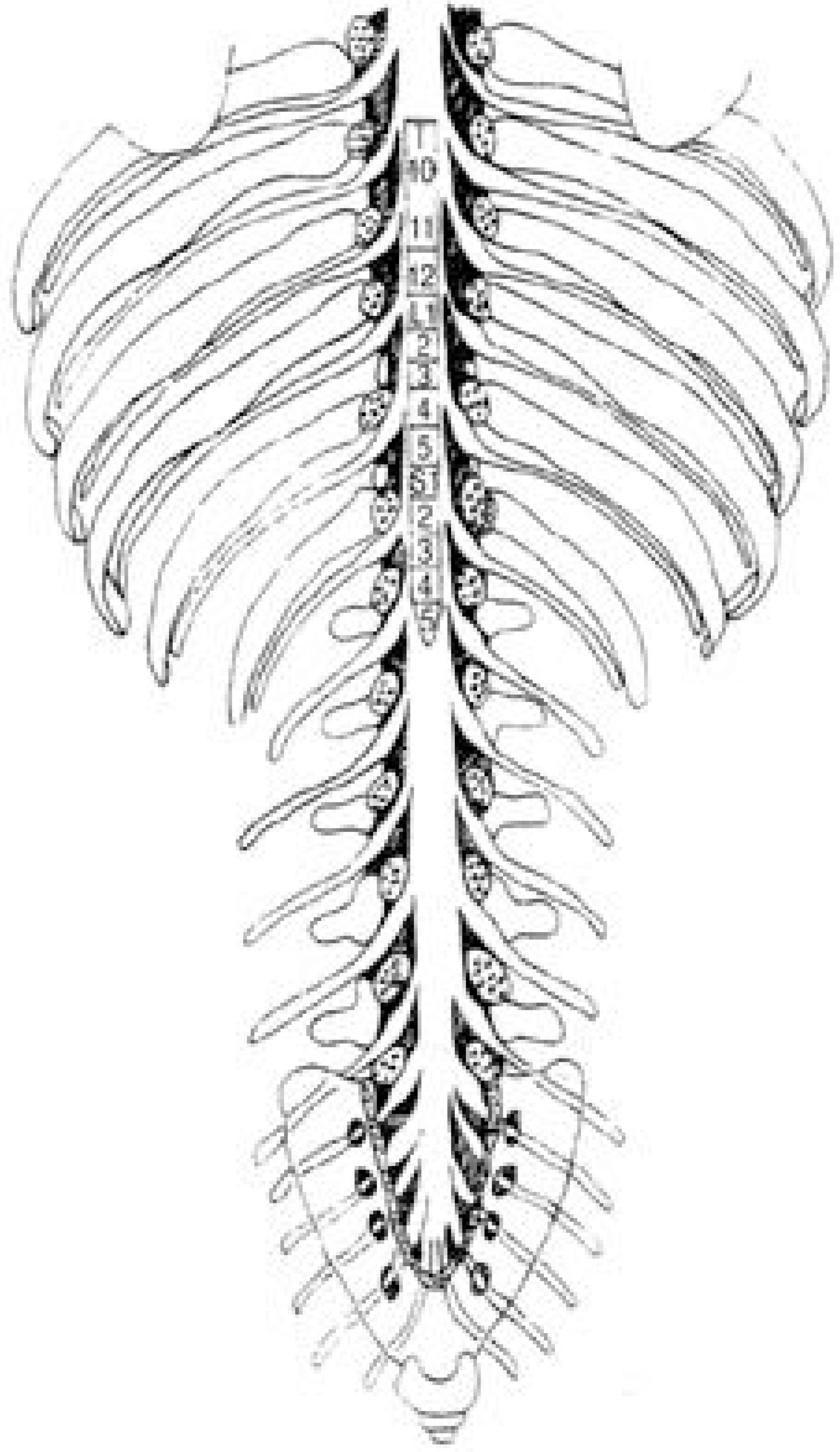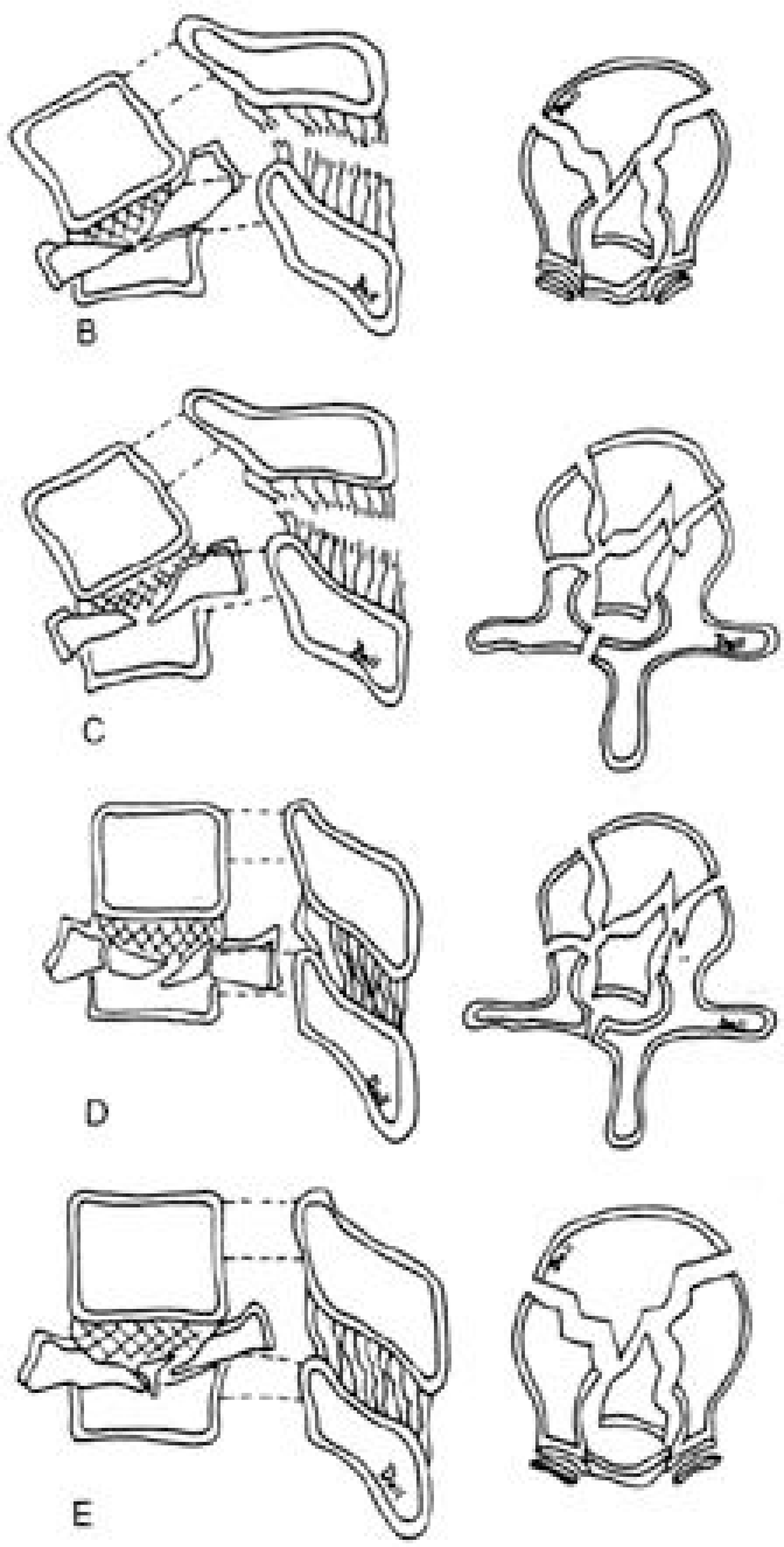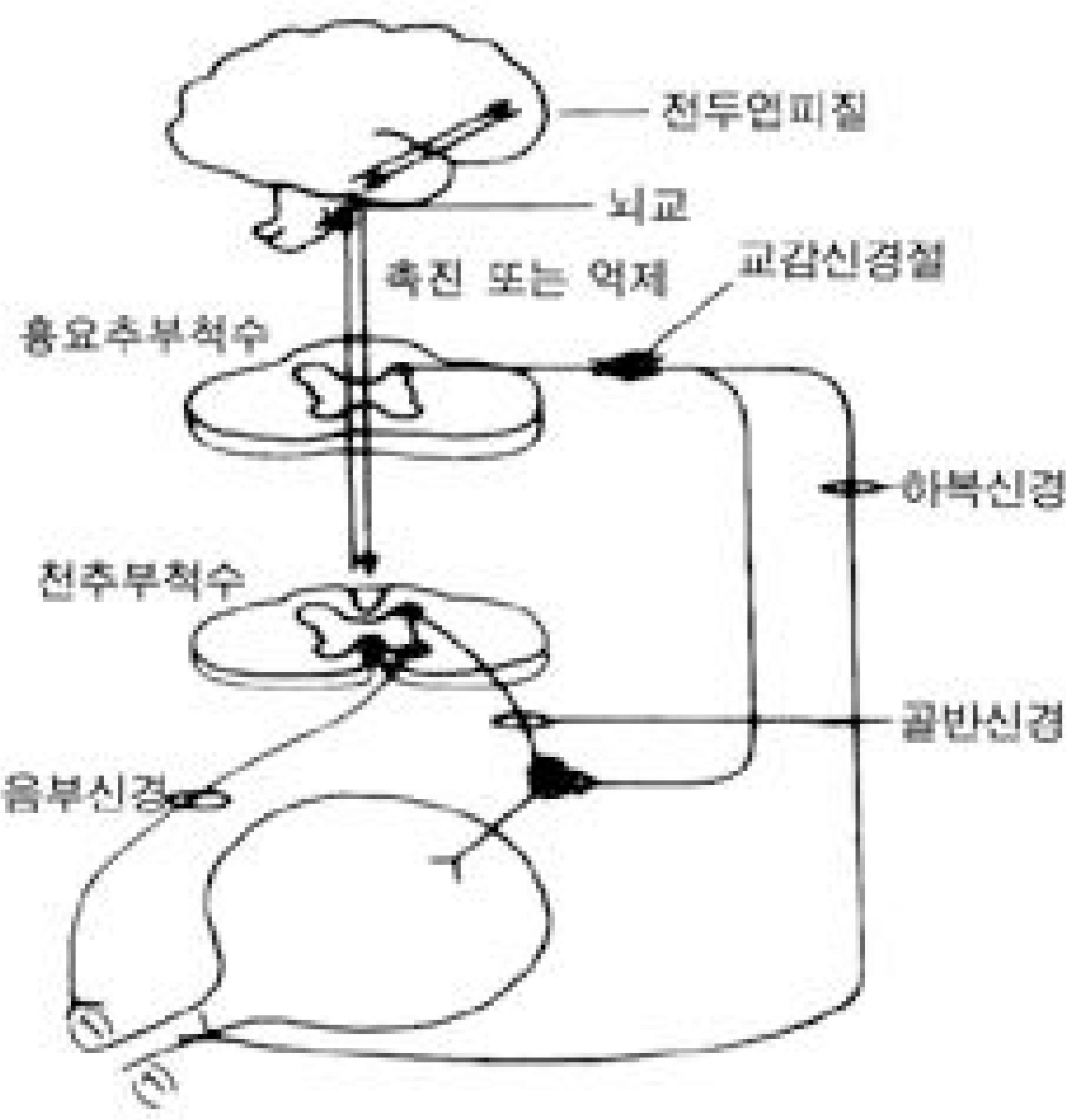Abstract
1. Evaluation of the Neural Injury For evaluation of neural injury from the thoracolumbar spine fracture, we should know the type and extent of injury. In case of the complete Spinal Cord Injury (SCI - Frankel classification A), they will not only lose the spinal cord function permanently distal to the injury site, but also show the probability 0~9% from Frankel A to D or E. But in case of the incomplete SCI, they will show sacral sparing and some kind of function will be recovered. The anticipation of recovery from the SCI depend on the results of neurologic examination after the spinal shock. If they have motor sparing, 86% of patients show the recovery of motor function during the first 6 month. The factor that influence to neurologic recovery are the initial kyphosis angle and canal compromising pattern, and do not influenced by treatmet methods.2. The Factor of the Neural Injury Recovery 1) Conservative treatment in acute stage The inital pathophysiology of SCI is the mechanical injury, but secondary injury will be occur by impairment of blood supply and biochemical alteration, formation of free radial, release of glutamic acid, calcium influx, lipid peroxidation. Immediate methylprednisolone could minimize the spinal cord inury during the first 8 hours, and other GM- 1 ganglioside, naloxone, TRH, spinal cord cooling, hyperbaric theraphy will be helpful.2) Surgical treatment The factor influence the recovery of SCI (1) time interval injury to operation, (2)decompression of neural element, (3) reduction of fractured fragment.3) Management of the Residual chronic stage Most common cause of death in SCI is urinary complication. We always should consider the improvement bladder function in SCI and the maintenance of low bladder pressure and feel free a bladder symptom.
REFERENCES
1). Campbell's Operative Orthopaedics. 9th edi., 2704-2711,. 2747–2779.
2). The Spine 4th edi. 1125–1142.
3). Bruce E. Dall, E. Shannon stauffer. Neurologic injury and recovery patterns in burst fractures at the T12 or L1 motion segment. Clinical Orthopaedics & Related Research. 233:171–6. 1988; Aug.
4). Burke DC, Muvray DD. The management of thoracic and thoracolumbar injuries of the spine with neurological involvement. J. Bone Joint Surg. 58B:72. 1976.
5). Bedbrook GM. Treatment of thorfacolumbar dislocation and fractures with paraplegia. Clin. Orthop. 112:27. 1975.
6). Davies WE. An analysis of conservative management of thoracolumbar fractures and fracture dislocations with neural damage. J. Bone Joint Surg. 62A:1324. 1980.
7). Dickson JH, Harrington PR, Erwin WD. Results of dislocation and stabilization of severely fractured thoracic and lumbar spine. J Bone Joint Surg. 60-A:799–805. 1978.
8). Floman Y, Farcy JPC, Argenson C. Thoracolumbar spine fractures. 1st ed.pp.p. 251–306. New York: Raven Press;1993.
9). Heinemann AW, Yarkony GM, Roth EJ, et al. Functional outcome following spinal cord injury: A comparison of specialized spinal cord injury center versus general hospital care. Arch. Neurol. 46:1098–1102. 1989.
10). Kim NH, Lee HM, Chun IM. Neurologic Injury and Recovery in Burst Fracture of Thoracolumbar Spine. J. of Korean Spine Surg. 2:11–20. 1995.
11). Lemons VR, Wagner FC Jr, Montesano PX. M anae -ment of thoracolumbar fractures with neurological injury. Neurosurgery. 30(5):667–71. 1992 May.




 PDF
PDF ePub
ePub Citation
Citation Print
Print





 XML Download
XML Download